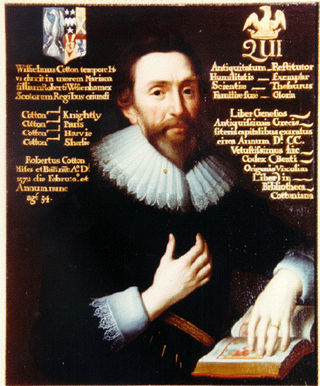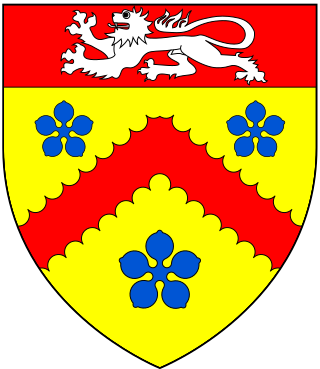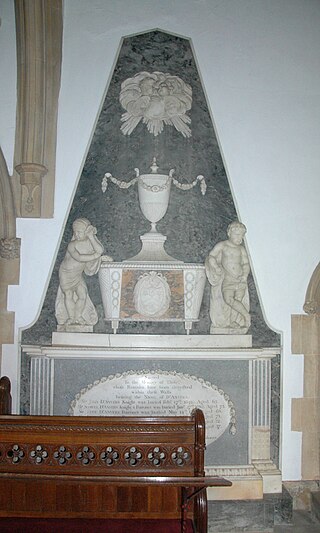
Earl of Buckinghamshire is a title in the Peerage of Great Britain. It was created in 1746 for John Hobart, 1st Baron Hobart.

There have been three Baronetcies created for persons with the surname Cotton, all in the Baronetage of England. One creation is extant as of 2008.
There have been ten baronetcies created for persons with the surname Browne, six in the Baronetage of Great Britain, three in the Baronetage of Ireland and one in the Baronetage of Nova Scotia. Only one creation is extant as of 2010. Three of the creations were for members of the Browne family headed by the Viscount Montagu.
There have been two Kerr baronetcies.

There have been three baronetcies created for persons with the surname Burdett, two in the Baronetage of England and one in the Baronetage of Ireland. As of 2008, two of the creations are extant while one is dormant.
Sir Robert Clarke, 2nd Baronet was a British politician who sat in the House of Commons from 1717 to 1722.

Freckenham is a small rural village and civil parish in the West Suffolk district of Suffolk in East Anglia, in the country of England.
There have been two baronetcies created for persons with the surname Gooch, one in the Baronetage of Great Britain and one in the Baronetage of the United Kingdom.

The Baronetcy of Gresley of Drakelow was created in the Baronetage of England on 29 June 1611 for George Gresley of Drakelow Hall, Derbyshire who was later High Sheriff of Derbyshire and Member of Parliament for Newcastle-under-Lyme.
There have been four baronetcies created for persons with the surname Musgrave, one in the Baronetage of England, one in the Baronetage of Nova Scotia, one in the Baronetage of Ireland and one in the Baronetage of the United Kingdom. As of 2014 two of the creations are extant.

There have been three baronetcies created for persons with the surname Cooke, two in the Baronetage of England and one in the Baronetage of Ireland. One creation is extant as of 2013.

There have been three baronetcies created for persons with the surname Carew, two in the Baronetage of England prior to 1707, one in the Baronetage of Great Britain.

There have been five baronetcies created for members of the old established family of Peyton of Peyton Hall in the parish of Boxford in Suffolk, all of whom were descended from Sir Robert Peyton of Isleham in Cambridgeshire, grandson and heir of Thomas Peyton (1418–1484) of Isleham, twice Sheriff of Cambridgeshire and Huntingdonshire, in 1443 and 1453. All the baronetcies are extinct.

The Baronetcy of Dukinfield of Dukinfield, Cheshire was created in the Baronetage of England on 16 June 1665 for Robert Dukinfield, son of Colonel Robert Dukinfield.

Snailwell is a small village and civil parish in East Cambridgeshire, England around 4 kilometres (2.5 mi) north of Newmarket.

There have been two baronetcies created for persons with the surname Danvers, one in the Baronetage of England and one in the Baronetage of Great Britain. Both creations are extinct.
Sir Henry Pickering, 2nd Baronet was an English politician who sat in the House of Commons from 1685 to 1689, and later settled in Barbados, where he played a prominent part in the island's government.

Sir Edmund Samuel Hayes, 3rd Baronet MP of Drumboe Castle, County Donegal was a Baronet in the Baronetage of Ireland and Member of Parliament for County Donegal from 1831 to 1860.

Sir Robert Dashwood, 1st Baronet (1662–1734) was an English politician.

The Stapleton Baronetcy, of the Leeward Islands, is an extinct title in the Baronetage of England. It was created on 20 December 1679 for William Stapleton, who followed Charles II into exile in France, and after the Restoration was appointed deputy-governor of Montserrat and captain-general of the Leeward Islands.
This page is based on this
Wikipedia article Text is available under the
CC BY-SA 4.0 license; additional terms may apply.
Images, videos and audio are available under their respective licenses.














